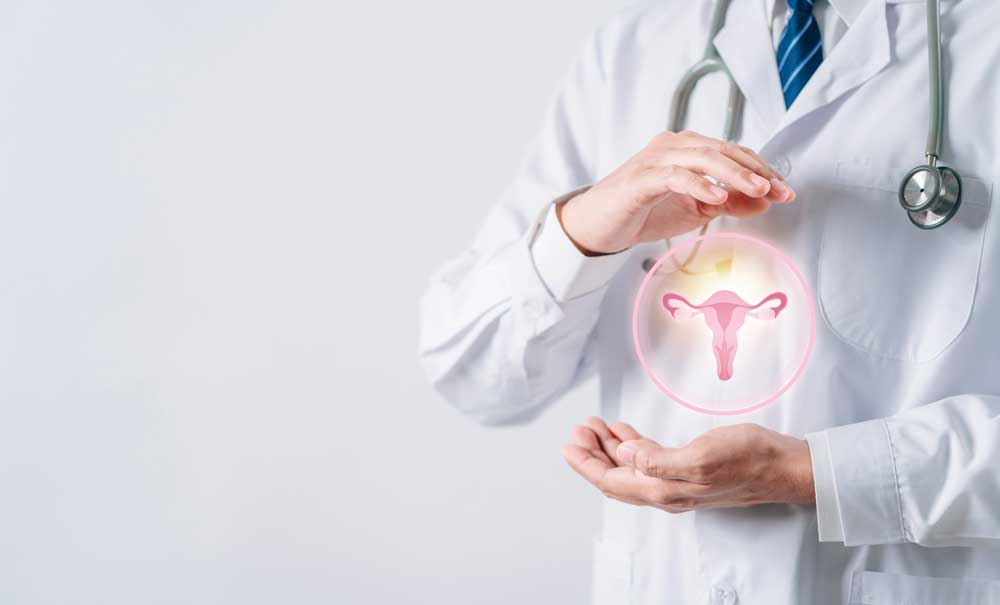PCOS, short for Polycystic Ovary Syndrome, is a prevalent hormonal condition affecting millions of women worldwide. Despite its prevalence, PCOS often goes undiagnosed or mismanaged, leading to various health complications. In this comprehensive guide, we aim to provide a thorough understanding of PCOS, exploring its symptoms, underlying causes, diagnostic methods, treatment options, and preventive measures. By empowering individuals with knowledge and practical insights, we strive to help them navigate their PCOS journey with confidence and improve their overall well-being.
Overview of PCOS
PCOS is a multifaceted endocrine disorder characterised by hormonal imbalances, ovarian dysfunction, and metabolic disturbances. It affects women of reproductive age and presents with a diverse array of symptoms, including irregular menstrual cycles, hyperandrogenism, and insulin resistance. PCOS extends beyond its reproductive implications, impacting metabolic health, fertility, and psychological well-being. Despite its complexity, PCOS disease shares common underlying mechanisms, such as insulin resistance and hyperandrogenism, contributing to its pathogenesis. Understanding these complexities is essential for accurate diagnosis and effective management of PCOS, leading to improved health outcomes and quality of life for affected individuals.
PCOS Causes
Polycystic Ovary Syndrome (PCOS) is a multifactorial disorder influenced by a combination of genetic, hormonal, environmental, and lifestyle factors. While the exact cause of PCOS remains elusive, researchers have identified several key factors contributing to its development.
The causes of PCOS are largely attributed to genetic factors, as evidenced by strong familial associations and findings from genome-wide association studies (GWAS). These studies have identified numerous genetic variants associated with PCOS susceptibility, implicating genes crucial for ovarian function, hormone regulation, and insulin signaling pathways. Noteworthy genes linked to PCOS risk include LHCGR, FSHR, INSR, and DENND1A, emphasising the condition's polygenic nature. PCOS Treatment and PCOS symptoms of PCOS causes are influenced by similar genetic underpinnings, highlighting the intricate interplay between genetic predisposition, symptom manifestation, and therapeutic approaches.
● Hormonal Imbalances: Hormonal dysregulation is a hallmark feature of PCOS, characterised by elevated levels of androgens (male hormones) and disrupted gonadotropin secretion. Insulin resistance, a condition in which cells fail to respond effectively to insulin, is a key driver of hormonal imbalances in PCOS. Insulin resistance leads to compensatory hyperinsulinemia, which stimulates ovarian androgen production and disrupts the hypothalamic-pituitary-ovarian axis, resulting in anovulation and menstrual irregularities. Elevated levels of luteinising hormone (LH) relative to follicle-stimulating hormone (FSH) further contribute to hyperandrogenism and follicular arrest in PCOS.
● Environmental Factors: Environmental influences, including lifestyle factors and exposure to endocrine-disrupting chemicals (EDCs), may exacerbate the development and progression of PCOS. Obesity, sedentary lifestyle, and poor dietary habits are associated with increased insulin resistance, hyperandrogenism, and menstrual irregularities in women with PCOS. EDCs, such as bisphenol A (BPA), phthalates, and polychlorinated biphenyls (PCBs), have been implicated in disrupting endocrine function and contributing to hormonal imbalances observed in PCOS.
● Lifestyle Factors: Modifiable lifestyle factors, including diet, exercise, and stress, play a crucial role in PCOS pathogenesis. High-calorie diets rich in processed foods, saturated fats, and refined carbohydrates exacerbate insulin resistance and metabolic dysfunction in PCOS. Sedentary behaviour and inadequate physical activity further contribute to weight gain, insulin resistance, and hormonal imbalances. Chronic stress and inadequate sleep disrupt neuroendocrine regulation, leading to dysregulation of the hypothalamic-pituitary-adrenal (HPA) axis and exacerbating hormonal imbalances in PCOS.

PCOS Symptoms
PCOS presents with a diverse array of symptoms that can vary in severity and presentation among affected individuals. The clinical manifestations of PCOS encompass reproductive, metabolic, dermatological, and psychological features, contributing to the complexity of the condition.
● Reproductive Symptoms: Irregular menstrual cycles are a hallmark feature of PCOS, with many women experiencing oligomenorrhea (infrequent periods) or amenorrhea (absence of periods). Anovulation, resulting from disrupted follicular development and inadequate luteinising hormone (LH) surge, contributes to menstrual irregularities and infertility in PCOS. Ovulatory dysfunction and subfertility are common among women with PCOS, necessitating interventions such as ovulation induction for those seeking pregnancy.
● Hyperandrogenism: Elevated levels of androgens (male hormones), including testosterone and dehydroepiandrosterone sulfate (DHEAS), contribute to the clinical features of hyperandrogenism observed in PCOS. Hirsutism, characterized by excessive hair growth in a male-pattern distribution, is a common manifestation of hyperandrogenism in PCOS. Acne, seborrhea, and male-pattern baldness (androgenic alopecia) are also prevalent among women with PCOS, reflecting the androgenic effects on the pilosebaceous unit and hair follicles.
● Metabolic Disturbances: Insulin resistance and metabolic dysfunction are prevalent in PCOS and contribute to an increased risk of metabolic syndrome, type 2 diabetes, and cardiovascular disease. Women with PCOS often exhibit central obesity, dyslipidemia (elevated triglycerides, decreased high-density lipoprotein cholesterol), and glucose intolerance, collectively known as the metabolic phenotype of PCOS. Hyperinsulinemia, resulting from insulin resistance, stimulates ovarian androgen production, exacerbating hyperandrogenism and menstrual irregularities in PCOS.
Diagnosis and Tests
Diagnosis of PCOS is typically established through a thorough assessment combining clinical evaluation, medical history, and specific laboratory tests. Commonly used diagnostic criteria, such as the Rotterdam criteria, require the presence of at least two out of three key features: irregular menstrual cycles, signs of hyperandrogenism (such as acne, hirsutism, or male-pattern baldness), and polycystic ovaries observed on ultrasound. Medical history-taking aids in identifying symptoms suggestive of PCOS, including menstrual irregularities, excessive hair growth, acne, and fertility issues. Laboratory tests play a pivotal role in confirming the diagnosis and ruling out other conditions with similar presentations. These tests often include measurements of hormone levels such as testosterone, luteinising hormone (LH), follicle-stimulating hormone (FSH), and anti-Müllerian hormone (AMH), as well as assessments of fasting glucose, insulin levels, lipid profile, and thyroid function to evaluate metabolic health. Transvaginal ultrasound may be utilised to visualise ovarian morphology, although the absence of polycystic ovaries does not exclude the diagnosis. Through a comprehensive evaluation of clinical symptoms, hormonal imbalances and imaging findings, accurate diagnosis allows for tailored management strategies to address individual patient needs and improve long-term health outcomes.
Management and Treatment Options for PCOS Disease
The management of PCOS involves a multidisciplinary approach aimed at addressing specific symptoms, reducing long-term health risks, and improving quality of life. Treatment strategies for PCOS target hormonal imbalances, metabolic dysfunction, and associated comorbidities through a combination of lifestyle modifications, pharmacological interventions, and adjunctive therapies.
● Lifestyle Modifications: Dietary modifications, regular exercise, weight management, and stress reduction form the cornerstone of PCOS management. A balanced diet rich in fruits, vegetables, whole grains, lean proteins, and healthy fats can improve insulin sensitivity, regulate menstrual cycles, and promote weight loss in women with PCOS. Regular physical activity, including aerobic exercise and strength training, helps improve insulin sensitivity, reduce central adiposity, and enhance cardiovascular health. Stress management techniques such as mindfulness, relaxation exercises, and cognitive-behavioral therapy (CBT) can mitigate the impact of chronic stress on hormonal regulation and overall well-being in PCOS.
● Pharmacological Interventions: Pharmacotherapy may be prescribed to target specific symptoms or underlying hormonal imbalances in PCOS. Oral contraceptives (birth control pills) are commonly used to regulate menstrual cycles, reduce androgen levels, and alleviate symptoms such as hirsutism and acne in women with PCOS. Anti-androgen medications, such as spironolactone and cyproterone acetate, may be prescribed to manage hyperandrogenism and its associated dermatological manifestations. Insulin-sensitizing agents, including metformin and thiazolidinediones, improve insulin sensitivity and metabolic parameters in women with PCOS and insulin resistance. Ovulation-inducing medications, such as clomiphene citrate and letrozole, may be recommended for women with PCOS seeking pregnancy.
Preventive Measures for PCOS Disease
While PCOS disease cannot be prevented, early recognition of risk factors, targeted interventions, and proactive management strategies may help mitigate its impact, reduce disease progression, and optimize health outcomes in susceptible individuals. Primary prevention focuses on promoting healthy behaviours, addressing modifiable risk factors, and fostering a supportive environment conducive to optimal health and well-being.
Key preventive measures for PCOS disease encompass lifestyle modifications, including dietary adjustments, regular physical activity, weight management, stress reduction, and smoking cessation, aimed at improving metabolic health, insulin sensitivity, and hormonal balance.
Preconception counselling and risk stratification enable proactive management of PCOS disease-related fertility issues, optimising reproductive outcomes and minimising obstetric complications. Multidisciplinary care, including regular medical monitoring, health education, and psychosocial support, enhances patient engagement, adherence to treatment, and long-term adherence to healthy behaviours, promoting resilience, and well-being in PCOS disease.

Conclusion
In conclusion, understanding the PCOS causes, PCOS symptoms, and PCOS treatment options for PCOS is essential for adopting a holistic and personalised approach to diagnosis, management, and prevention. By addressing the multifaceted nature of PCOS, individuals can proactively manage their health and improve their quality of life. Comprehensive care, including lifestyle modifications, pharmacotherapy, surgical interventions, and adjunctive therapies, provides a diverse toolkit for tackling the various manifestations and underlying pathophysiological mechanisms of PCOS. Empowering patients with knowledge about PCOS enhances their ability to make informed decisions and effectively navigate their healthcare journey.
FAQs
Can PCOS be cured?
No, PCOS cannot be cured, but its symptoms can be managed effectively through lifestyle changes and medications.
Is PCOS hereditary?
While genetics may play a role in PCOS development, lifestyle factors also contribute significantly to its manifestation.
Can PCOS affect fertility?
Yes, PCOS can cause fertility issues due to irregular ovulation and hormonal imbalances, but many women with PCOS conceive with appropriate treatment and lifestyle changes.
What are the main symptoms of PCOS?
Common symptoms of PCOS include irregular periods, excessive hair growth, acne, weight gain, and fertility problems.
How is PCOS diagnosed?
PCOS is diagnosed based on symptoms, medical history, physical examination, and various tests including hormone tests and ultrasound imaging.
What are the treatment options for PCOS?
Treatment for PCOS may include lifestyle changes (diet, exercise), medications (such as birth control pills, metformin) and fertility treatments.